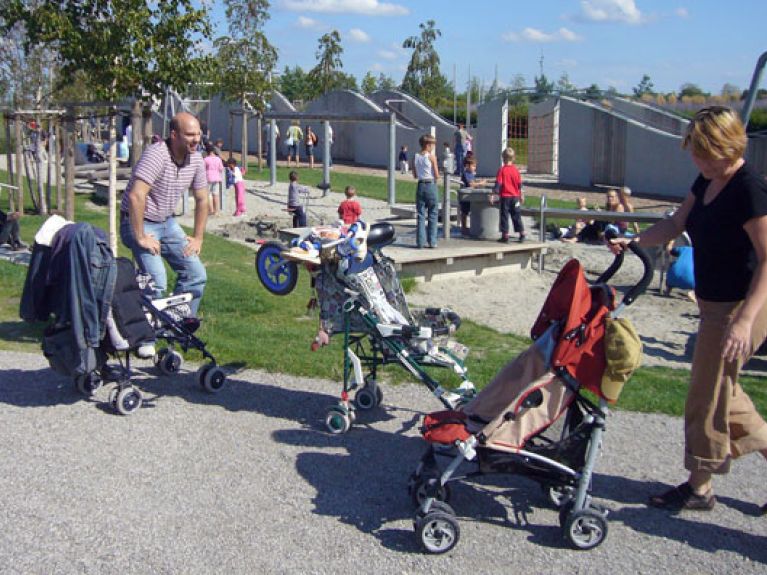Enriching diversity
Germany is a cosmopolitan country shaped by a pluralism of lifestyles. Demographic change is set to play a major role in the coming years.

With some 81.2 million inhabitants, Germany is the most populous nation in the European Union. The modern, cosmopolitan country has developed into an important immigration country. A good 16.4 million people in Germany have a migratory background. Germany is now among those nations with the most liberal immigration rules. According to a 2014 study by the Organisation for Economic Co-operation and Development (OECD), it is the most popular immigration country after the USA.
Most people in Germany have a high standard of living, on an international comparison, and the corresponding freedom to shape their own lives. The United Nations’ Human Development Index (HDI) 2014 ranks Germany sixth of 187 countries. In the Nation Brands Index 2014, an international survey on the image of 50 countries, Germany tops the scale – also owing to its high values in the areas of quality of life and social justice. Germany considers itself a welfare state, whose primary task is to protect all its citizens.
New ways of life are changing the society
German society is shaped by a pluralism of lifestyles and ethno-cultural diversity. New ways of life and everyday realities are changing daily life in society. Immigrants enrich the country with new perspectives and experiences. There is great social openness and acceptance as regards alternative ways of life and different sexual orientations. Advances are being made in terms of gender equality and traditional gender role assignments are no longer rigid. People with disabilities are taking an ever greater role in social life.
Demographic and socioeconomic change
In future, demographic change is set to shape Germany more than virtually any other development. The birth rate has been constantly low since the late 1990s at 1.4 children per woman, and life expectancy is rising. By 2050 the population in Germany is estimated to shrink by around seven million people. At the same time, the growing number of elderly people is presenting social welfare systems with new challenges.
Socioeconomic change in Germany in recent years has led to the emergence of new social risks and stronger social diversification according to economic living conditions. Although in 2014 unemployment was at the same low level as in 1991 (on average 2.7 million), almost one in six in Germany is at risk of poverty, particularly young people and single parents. Moreover, social differences continue to exist between east and west.